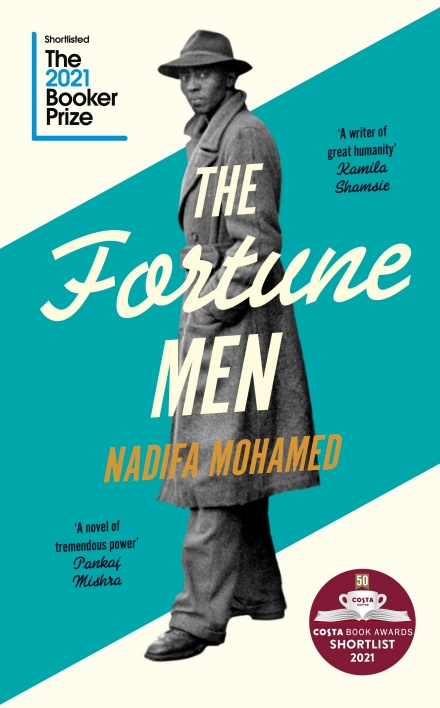Book review: The Fortune Men by Nadifa Mohamed
“I have tasted the bitterness of injustice” Mahmood Mattan tells the imam who visits him in jail, as he awaits his execution for a crime we now know he did not commit. Mattan, a Somali seaman who has settled in Cardiff’s Tiger Bay, has been fingered for the murder of Violet Volacki, a Jewish shopkeeper,… Continue reading

“I have tasted the bitterness of injustice” Mahmood Mattan tells the imam who visits him in jail, as he awaits his execution for a crime we now know he did not commit.
Mattan, a Somali seaman who has settled in Cardiff’s Tiger Bay, has been fingered for the murder of Violet Volacki, a Jewish shopkeeper, in 1952. Kicked out by his white wife and children, and now leading an unsettled life of drinking, gambling and petty criminality, the former boilerman is a convenient target for prejudiced local police and witnesses motivated by the monetary reward offered by the victim’s family.
For the police it is enough that they are looking for “a coloured man” and in the absence of other evidence linking Mattan to the murder, they try to pressurise the victim’s sister and niece into identifying him in a line-up. Mattan’s indignant certainty of his own innocence and his misplaced faith in British justice are not enough to protect him from the forces of prejudice. Even his own barrister describes him as little better than a savage, and the jury are all too easily persuaded of his guilt. Mattan is convicted and sentenced to the death penalty.
In retelling this true story as a novel the British-Somali author Nadifa Mohamed paints a vivid picture of the melting-pot culture of Tiger Bay in the mid-20th century, in the midst of which all the main characters struggle against various kinds of prejudice. As well as contending with British antisemitism, the Volacki family have relatives elsewhere in Europe caught up in the Holocaust. Mattan faces an uphill struggle when first courting and then marrying Laura Williams, whose own family are ready to believe the worst of him; but his own unsettled childhood in British Somaliland and his life as a merchant seaman help us understand his combative and ultimately destructive self-righteousness. (The author has since explained that the expression “Fortune Men” is a Somali term that refers to men “who had gone to make their fortunes at sea”, but could also mean men “who put their fate in fortune’s hands”.)
The novel concludes with a forensic account of the trial, much of which reads like a transcript, followed by Mattan’s consignment to Cardiff Prison and the unsuccessful appeals which prelude his eventual hanging.
In an epilogue Nadifa Mohamed describes Laura and her family’s subsequent attempts to clear Mattan’s name. When the Criminal Cases Review Commission was established to investigate possible historic miscarriages of justice, Mattan’s case was the first one accepted and in 1998 his conviction was quashed by the Court of Appeal. The murder of Lily Volpert (on whom the character of Violet Volacki in the novel is based) remains unsolved.

The Fortune Men by Nadifa Mohamed (Viking, £14.99)
Featured image: Butetown Art, by Walt Jabsco (creative commons via Flickr, reproduced with thanks). Part of a mural painted by local boys Kyle Legall and Anthony Britto depicting the history and struggles of the infamous area of Cardiff that used to be known as Tiger Bay.